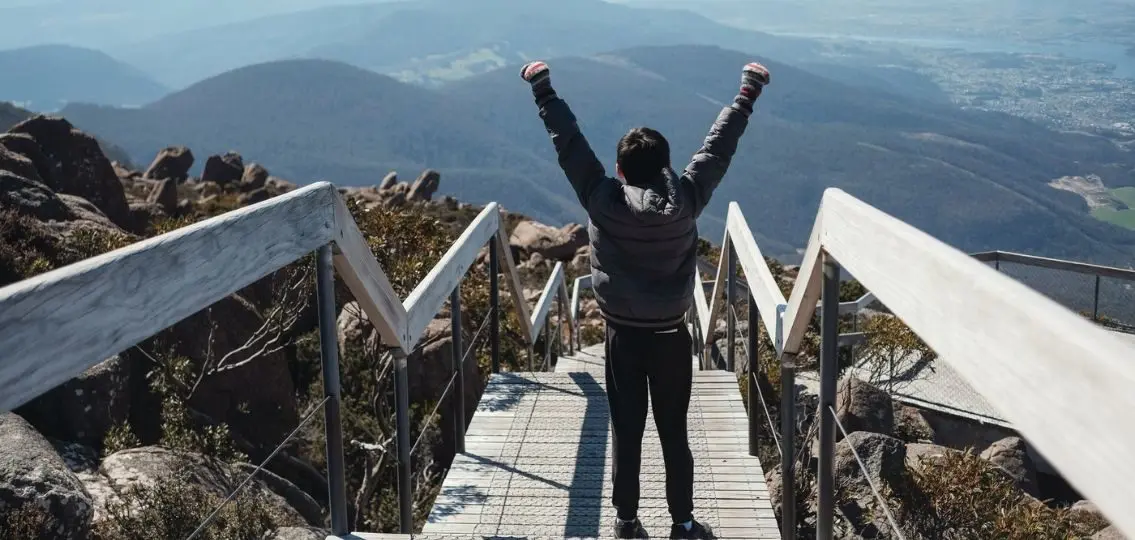Earlier this year, my son Sam received an acceptance from the college of his choice. Initially, he was ecstatic. But, as months skidded by and the pandemic continued to wreak havoc on our world, his excitement shifted to indecision as he slowly came to terms with the fact that the college experience in our “new normal” looked drastically different from the one he’d envisioned last fall.

The components Sam was most excited about—hands-on learning in labs, attending sporting events with new friends, dining in groups at all hours of the day and night—are no longer options.
After much back and forth, he made the decision to defer until fall of 2021. He isn’t alone. In June, Fitch Ratings announced it anticipated an annual enrollment decline from 5 percent to 20 percent for many colleges and universities in the fall of 2020 due to the pandemic.
While gap years aren’t uncommon, students typically use these sabbaticals to travel the world or volunteer for causes that are close to their heart. Some opt to pursue on-site internships that offer an up-close view into the field they hope to pursue.
But this year, as COVID-19 continues to raise health concerns that complicate travel and require social distancing, those traditional gap year activities may no longer be an option. But that doesn’t mean it’s okay to sleep until noon and spend the rest of the day Snapchatting and gaming.
If students are taking this year off, they should use it wisely, notes Kate Sonnenberg, founder of KS College Success.
“Students who take gap years that are purposeful start college recharged and tend to have higher GPAs and better graduation rates,” she says.
With that in mind, here are some ideas for how to make the most of a gap year, according to experts.
Gap Year Activities: What to Do in a Gap Year
Gain real world experience remotely
Psychologist Ken Lewis is a proponent of gap years.
“They can allow students to get some experience of the ‘real’ world of work so that they have a better vision of their future direction,” he says.
Real world experience isn’t just contained to the physical workplace. It can be done online too, he notes. “There are plenty of online internships available, and they allow access to what is actually involved with a job, as compared to a romanticized ideal.”
There’s still time for students to figure out a gap year activity if they have deferred for this fall. A few sources to check include:
When selecting a job, students should remain focused on their future educational goal, recommends Michaela Schieffer, an independent college counselor with MoonPrep.com.
“Make every step during your gap year count towards the big picture,” Schieffer says. “This is the time to land an internship in your intended industry, to add professional experience to the resume before graduating, or to gain perspective before entering college.”
Her advice on how to get that coveted experience? Go after what you want.
“Send emails to companies in your intended field to ask about unposted internship opportunities,” says Schieffer. “It never hurts to ask. Connect with industry professionals on LinkedIn and set up an Indeed email alert for remote opportunities.”
Volunteer virtually
For politically-minded students, 2020 presents an interesting opportunity.
“One thing that might be really eye-opening and educational would be to work on a political campaign,” notes Laurie Kopp Weingarten of One-Stop College Counseling. “Even if social-distancing, students might be able to make candidate calls, help with surveys, and design and implement social media plans.”
Pierre Huguet of H&C Education, an educational consultancy, says now is a great time for students to help their communities, join activist groups, or create their own groups, all while building their resumes with meaningful experiences.
Students interested in volunteering opportunities can visit the following websites to explore their options:
Continue learning
Teens should continue to work on personal growth during their downtime, notes Andrew Geant of the tutoring company Wyzant.
“Learn something new and take the chance to further your education in an area you’re passionate about,” he says. “You have a unique opportunity to focus on specialized courses that you normally wouldn’t have in a traditional school year.”
Joyee Lin, independent educational consultant and founder of ThinquePrep, agrees.
“We are fortunate in that we are quarantining during the age of technology. Imagine being stuck at home 20 years ago with dial-up internet and a VCR! With the internet at our fingertips, you can learn a plethora of skills online through various courses or apps.”
Greg Emslie, a personal career coach at A More Perfect Career, advises teens to be proactive and use this time wisely to figure out what they want to do in college.
“When students go to college enrolled in majors they love and are good at, they have better self-confidence, less anxiety, get better grades, and tend to graduate on time,” Emslie notes. “If you can eliminate the trap 60% of students fall into, which is a fifth year and another $20,000-plus, this gap year could turn out to be a wise investment for you and your family.”

The bottom line to taking a year off is that teens should be working toward their future goals—not spending this time just waiting for the next school year to start.





